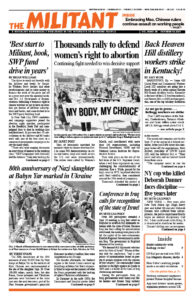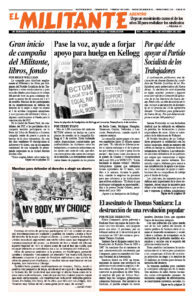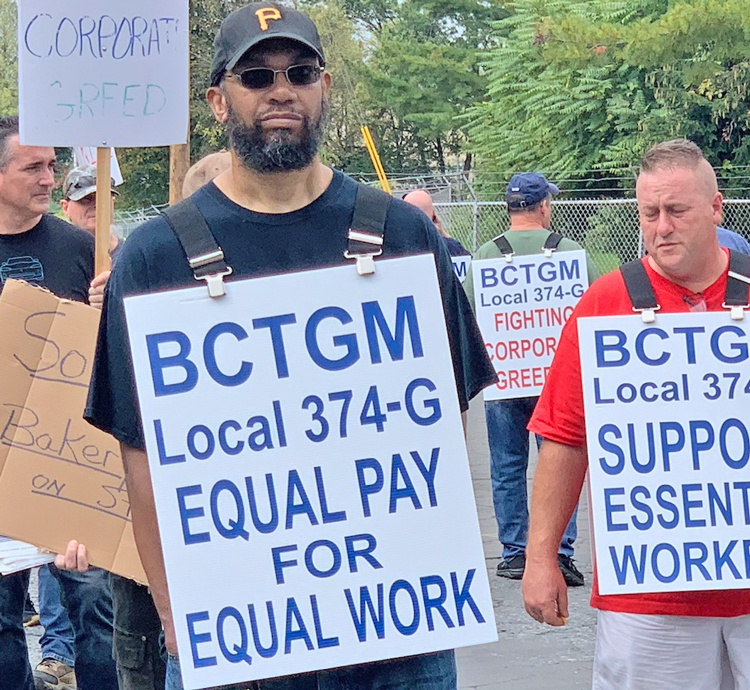Over 1,400 members of the Bakery, Confectionery, Tobacco Workers and Grain Millers union struck four Kellogg Company cereal plants Oct. 5. They are determined to fight bosses’ demands for a two-tier contract that would deepen divisions among workers, as well as cuts to cost-of-living-adjustments, which offer some protection from inflation, limits to holiday pay and reduced vacations.
Workers set up picket lines at plants in Battle Creek, Michigan; Memphis, Tennessee; Omaha, Nebraska; and Lancaster, Pennsylvania the day after their old contract expired.
The company plans to pay new hires up to $13-an-hour less, Rob Eafen, president of Local 252G in Memphis, told the press. “Do not deprive these people of what is rightfully theirs,” he said. “It’s not getting any cheaper to live, so why should they accept lower wages and higher costs of benefits?”
“It’s ridiculous the difference between the full pay and the person working beside them making a lot less,” Jason Lenz, a mechanic in the Omaha plant and vice president of Local 50G, told WOWT-TV. “They’re doing the same work.”
“We’re here to support one for all and all for one,” striker Kerry Hall said.
Many workers said they put in exhausting 12-hour shifts, seven days a week, during the pandemic, when the company pressed them to cover for sick workers. “The level we were working at is unsustainable,” Daniel Osborn, president of Local 50G, told the press.
“They just don’t really treat us like people,” Trevor Bidelman, president of Local 3G in Battle Creek, told WWMT-TV. “They have no issue telling us that we can’t go to funerals of aunts and uncles and friends. No issue at all with treating us like we are just owed to this place. And that’s how they’ve been treating us for at least a decade.”
The union says, “The company would like to remove the Union logo from its products. This would make it easier to move product to non-union locations.”


